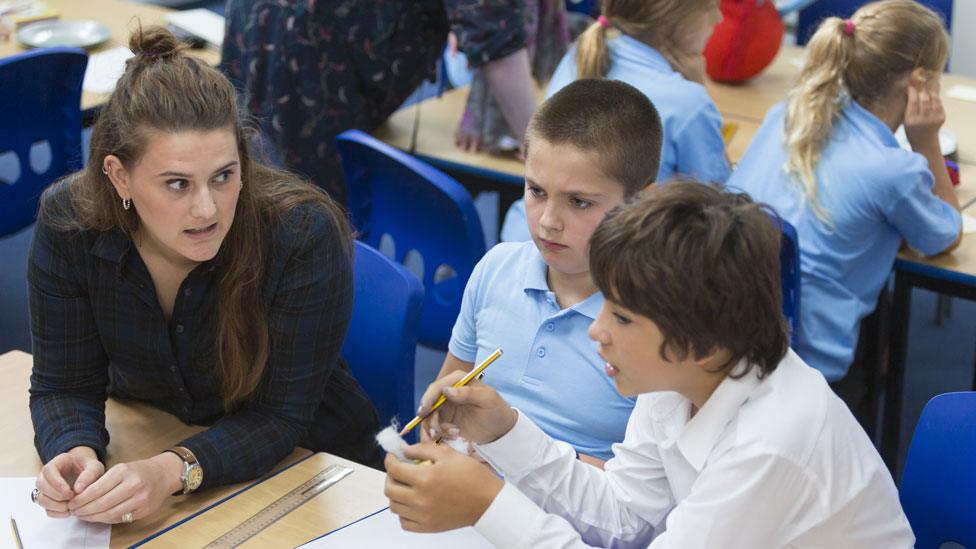Tory councils warn on school funding
- Published
- comments

Schools have complained about running out of cash
More than a dozen Conservative councils have written to Prime Minister Theresa May to warn of their "alarm" at inadequate school funding in England.
They are part of a cross-party group of councils with low levels of funding.
They had hoped to benefit from changes to the funding formula but now say the funding gap will remain unresolved.
The Department for Education (DfE), which is carrying out a consultation on the changes, says schools are already receiving record levels of funding.
But the joint letter - from representatives of councils including Buckinghamshire, Dorset, Devon, Hampshire, Leicestershire, West Sussex and Wiltshire - says: "We are struggling to understand where more cuts can be made in the lowest funded authorities."
The councils are part of the F40 group, which has campaigned for years against what it saw as unfairly low levels of funding compared with other parts of England.
But Monday's letter says: "We are extremely concerned that the government is in danger of replacing one injustice with another."
The councils question whether the funding formula should allocate so much towards additional needs, such as for schools with high levels of deprivation or pupils with English as a second language.
And they say all schools need a guaranteed basic level of funding to cover essential costs such as staffing.
Last week, the ASCL head teachers' conference warned that schools could have to cut hours because of deepening funding problems.
The National Audit Office says schools face cuts of £3bn, and heads have warned of having to cut subjects, increase class sizes and reduce staff.
The Department for Education says a consultation is still taking place on how the funding formula is calculated - which will end next week.
"We have protected the core schools budget in real terms since 2010, with school funding at its highest level on record at more than £40bn in 2016-17 - and that is set to rise, as pupil numbers rise over the next two years, to £42 billion by 2019-20."
- Published10 March 2017

- Published9 March 2017

- Published17 February 2017
- Published31 January 2017
